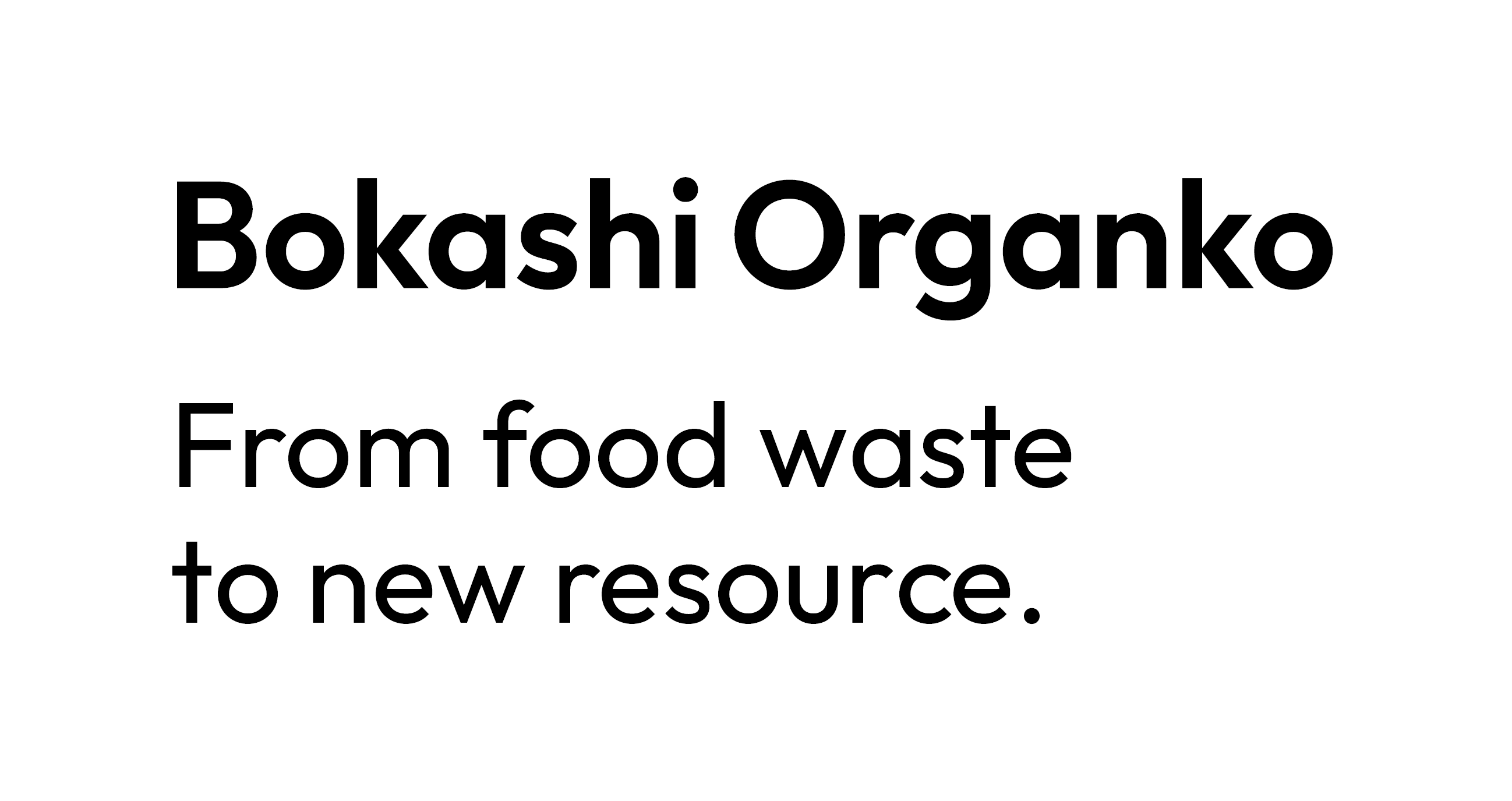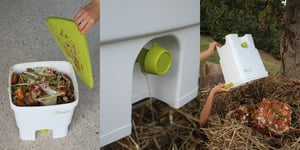Most people aren’t aware that food waste is one of the major problems of our time. Unfortunately, on average, we waste about one-third of all food. Of course, there are inefficiencies across the entire food supply chain that produce a lot of food waste. However, the major contributors are still households. After all, roughly 34 % of all municipal waste is kitchen waste. And a whopping 60 % of that is food waste.
Moreover, most kitchen waste still ends up in landfills, where it rots and emits methane. The latter is a highly potent (21 times more than CO2) greenhouse gas (GHG), contributing to enhanced global warming. It’s been assessed that food waste results in a total of more than 6% GHGs. Some of the latest data suggest that this number is as high as 10 %. Nonetheless, not only is food waste burdening our environment, but it is also absurd and unfortunate to waste one-third of food while every tenth person still suffers from malnourishment.
With that in mind, we must rethink and reorganize our society. Luckily, there are already known solutions that can convert food waste problems into new, precious resources.
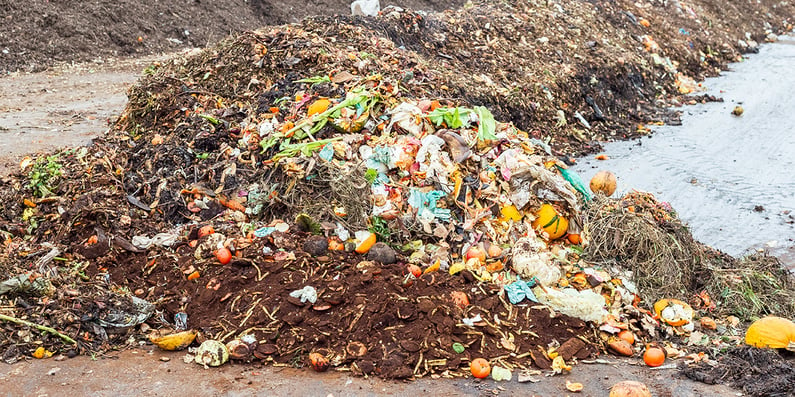
Ancient food waste solution
Before we focus on an ancient food waste solution that has the power to help us restore proper order regarding food waste handling and even food production, it’s important to note that we must all first stop for a couple of minutes. So, take a couple of deep breaths and promise yourself that you will reduce your food waste by shopping mindfully (stick to the list), organizing your food supplies properly, and doing your best to reduce food leftovers to zero. As such, the first step must focus on reducing food waste as much as possible. However, it's almost impossible to eliminate organic waste, especially if you are preparing most of your meals yourself. Luckily, we can adequately collect that waste and repurpose it. This is where the bokashi composting enters the scene.
This effective and efficient composting method originates from ancient Asia. What makes bokashi composting so incredible is the fact that the process of decomposition takes place in airtight conditions. As such, despite being called bokashi “composting,” it is, in fact, fermentation. This fact makes the bokashi method suitable for indoor composting. Hence, by using high-quality airtight bokashi composting bins, every household can properly collect its kitchen waste, including food waste. By doing so, average Joes and Janes can also start converting organic waste into new resources in the comfort of their homes.
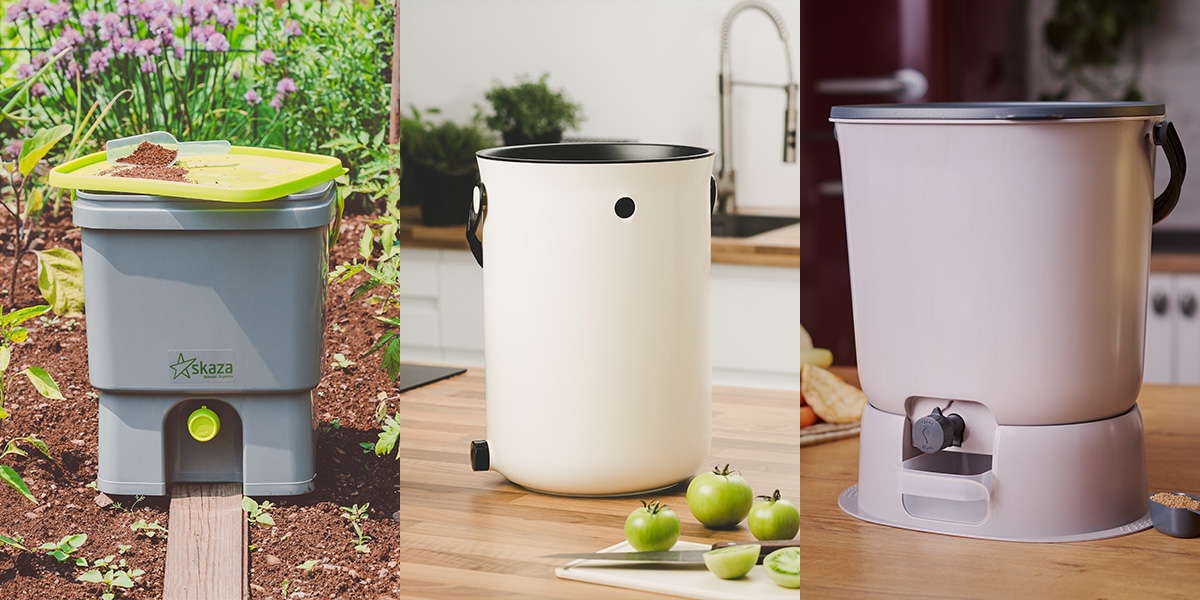
Furthermore, due to the above-described airtight conditions, there is no unpleasant smell or any pests related to this method of handling kitchen waste. Moreover, this method also produces close to zero GHG emissions - roughly 20 times less than traditional composting. On the other hand, it is about three times faster at decomposing organic material compared to other composting types. Hence, bokashi composting is both environmentally and user-friendly.
How does this food waste solution work?
It starts with properly collecting household waste - it’s important to collect only organic material in bokashi composting bins. Moreover, to ensure that airtight conditions are rarely disrupted, it is best to use bokashi composting bins in combination with a practical kitchen waste collector, such as Organko Daily. That way, you get to collect their organic waste during the day with that smaller bin. Then, at the end of the day, you dispose of that batch into a reliable bokashi composter, such as Bokashi Organko Essential.
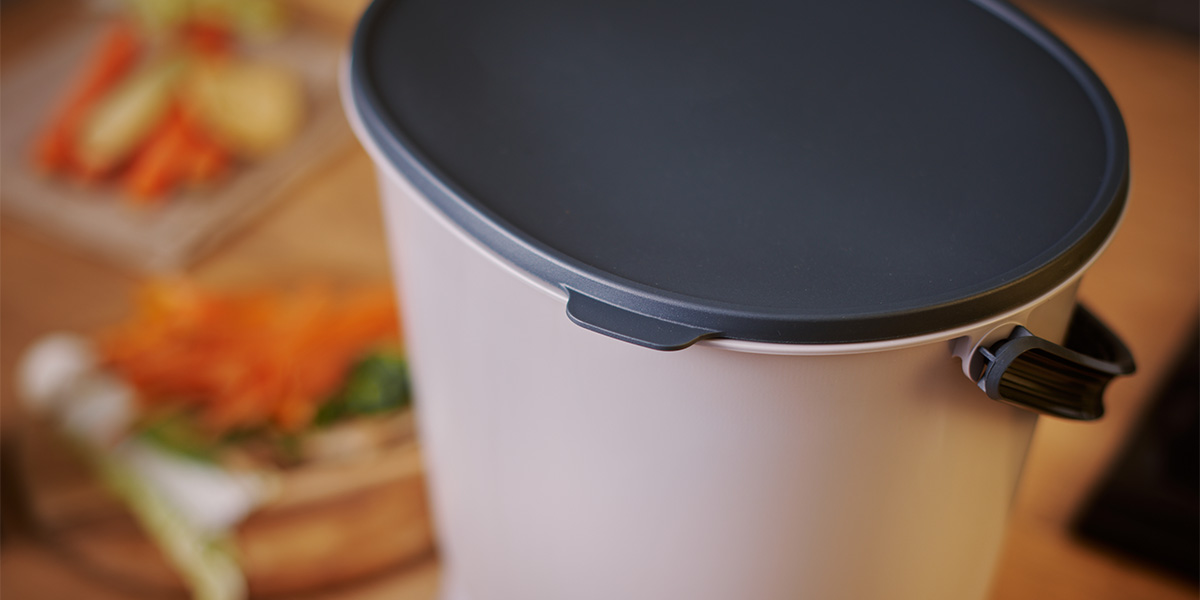
Moreover, to ensure that the process of fermentation is fast and efficient, you also need to sprinkle the empty composter and then on top of every batch of organic waste with bokashi bran. The latter is full of effective microorganisms that are the key to fermentation. Then, you simply repeat the process until the bin is full. That is it for the COLLECT phase. Next comes the PROCESS phase.
In reality, the process of converting your food waste and other organic material into new resources starts before the bin is full. It usually takes two to three days from the first batch of organic waste being collected for the process to begin. The great thing about the process phase is that you don’t have to do anything. You just need to ensure that the bin is closed correctly. By properly collecting and adding bokashi bran, the process will take the right course. However, as the process of fermentation begins its course, it already starts producing a new resource - fermentation liquid (a.k.a bokashi juice). So, it’s your job to collect that juice every couple of days. This is also where a proper bokashi composting bin makes a difference.
Food waste becomes a precious resource.
In the USE phase, the side mentioned above product can be diluted in a 1:200 ratio to serve as an organic fertilizer. Or, you may pour it down the drain undiluted to use it as a natural drain cleaner. However, to get the primary resource - bokashi cake - it’s best to leave a full bin and do its thing for two weeks while continuously collecting bokashi juice. That is also why it's best to get a set of two bokashi composting bins; while one is full and converting your food waste into new resources, you use the other one to collect your ongoing kitchen waste. After 14 days of fermentation, you get a highly nutrient pre-compost mass (bokashi cake). The latter can then be used for organic gardening and farming. And that is how food waste becomes a new resource.

However, since not every household has its own garden, let alone a farm, the bokashi method starts to make the most significant impact when people join forces. By forming communities that handle organic waste responsibly, we can convert food waste into new resources on a larger scale. As such, we urge you to help us close the #bokashiloop.

